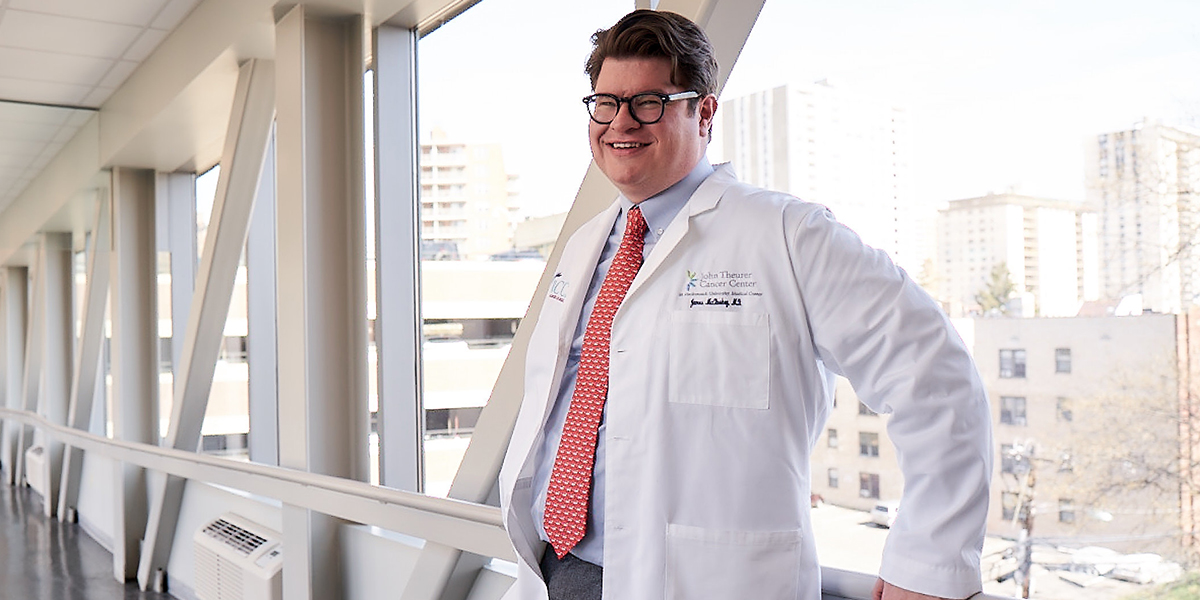John Theurer Cancer Center at Hackensack University Medical Center Contributes to New Generation of TKI Treatments Coming Online for Acute Leukemia
James McCloskey, M.D., comments on the new treatment pipeline for AML and ALL

The treatment options for acute leukemia are rapidly changing, with the rise of immunotherapy and a slew of FDA drug approvals on the horizon.
James McCloskey, M.D., interim chief, Division of Leukemia, John Theurer Cancer Center at Hackensack University Medical Center, recently shared perspective on the promising treatments in practice and under study for acute myeloid leukemia (AML) and acute lymphoblastic leukemia (ALL).
ALL treatments in the frontline setting have shifted substantially, he noted, especially for Ph+ ALL, thanks to the use of multiple generations of tyrosine kinase inhibitors (TKIs) in addition to chemotherapy to improve outcomes.
“They do a lot of the heavy lifting and potentially we can use less chemotherapy,” Dr. McCloskey said.
The third-generation TKI ponatinib is the most potent and likely the most effective for Ph+ ALL as demonstrated in the PhALLCON study, to which Dr. McCloskey contributed. Ponatinib was shown to be twice as effective as the first -generation TKI imatinib at achieving remissions without additional toxicity.
Dr. McCloskey also noted exciting data on ponatinib with blinatumomab immunotherapy, which has not been studied in a large randomized trial yet, but shows promise for a potential non-chemotherapy treatment with a 90% responsiveness rate in Ph+ ALL. While it’s currently approved for limited use, a recent randomized study showed improved survival for all ALL patients, irrespective of MRT status. This FDA is currently reviewing final data for frontline use.
“This is really shifting standard care in the front-line setting for patients with B-cell ALL,” Dr. McCloskey said.
These shifts naturally raise questions for clinicians, such as which chemotherapy agents to pair with TKIs. New therapy approvals call for new care protocols, and John Theurer Cancer Center formed a panel of physicians and pharmacists to develop new protocols in anticipation of upcoming treatment approvals. The panel is, for example, developing electronic orders to integrate and standardize new therapy protocols and address patient safety concerns, such as establishing drug interaction flags.
While there have not been many new treatments advances for AML since the early 2000s, Dr. McCloskey expressed excitement over preliminary data on new molecular targeted therapies, triplet therapy and mien inhibitors for KMT2A and PMI mutations.
As a Susan B. Komen Foundation trial participant with strong connections to community physicians, Hackensack University Medical Center gives regional patients access to promising mutation-specific treatments for these rare cancers.
Learn more about cancer care innovations at John Theurer Cancer Center at Hackensack University Medical Center.
If you are a patient looking for expert cancer care at Hackensack Meridian Health, please visit our cancer care services page to learn about our specialties, find locations, and schedule appointments.